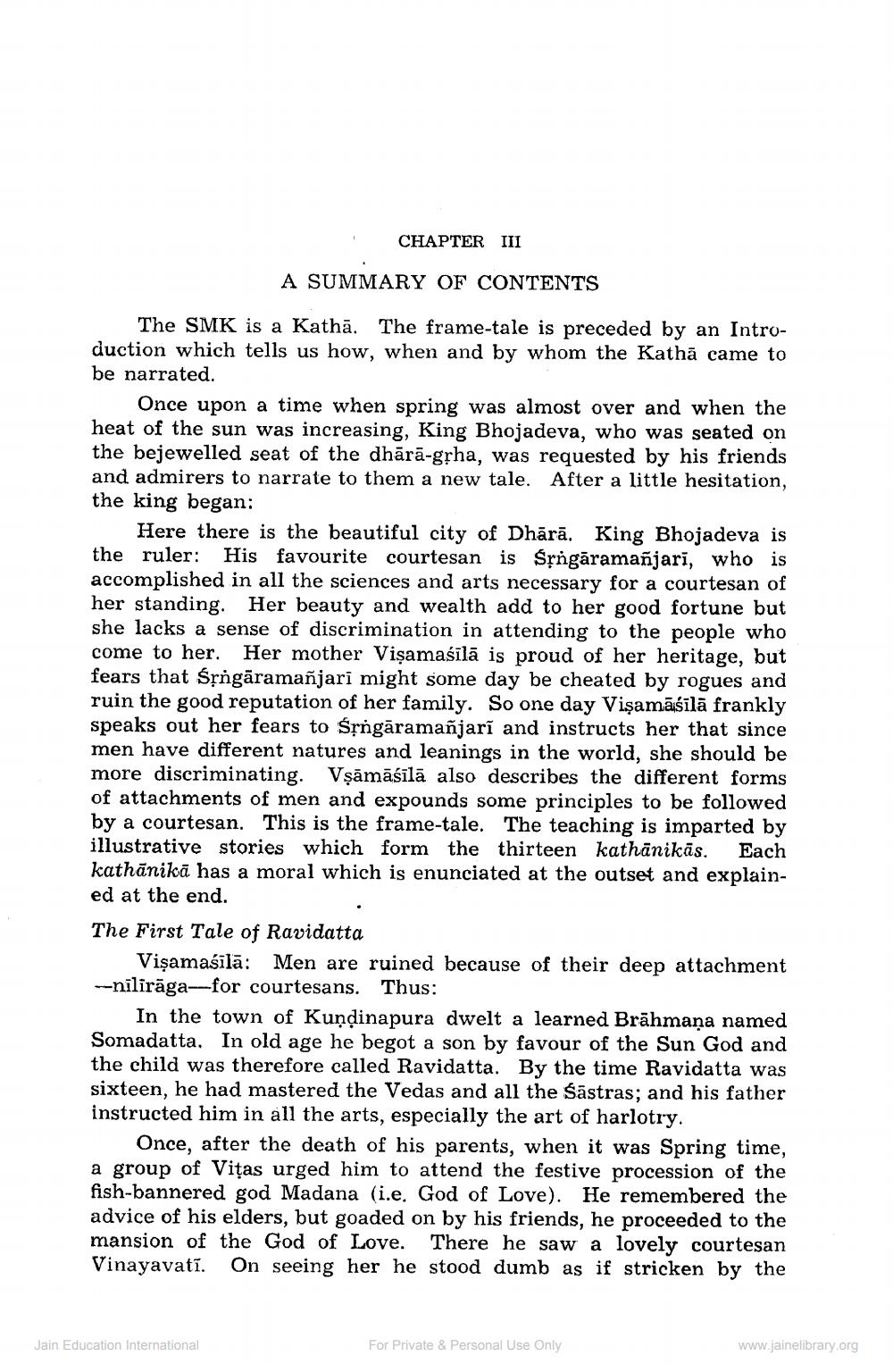________________
CHAPTER III
A SUMMARY OF CONTENTS
The SMK is a Kathā. The frame-tale is preceded by an Introduction which tells us how, when and by whom the Kathā came to be narrated.
Once upon a time when spring was almost over and when the heat of the sun was increasing, King Bhojadeva, who was seated on the bejewelled seat of the dhārā-gļha, was requested by his friends and admirers to narrate to them a new tale. After a little hesitation, the king began:
Here there is the beautiful city of Dhārā. King Bhojadeva is the ruler: His favourite courtesan is Srngāramañjari, who is accomplished in all the sciences and arts necessary for a courtesan of her standing. Her beauty and wealth add to her good fortune but she lacks a sense of discrimination in attending to the people who come to her. Her mother Vişamaśīlā is proud of her heritage, but fears that śrngāramañjarī might some day be cheated by rogues and ruin the good reputation of her family. So one day Vişamāśilā frankly speaks out her fears to Śộngāramañjarī and instructs her that since men have different natures and leanings in the world, she should be more discriminating. Vņāmāśilā also describes the different forms of attachments of men and expounds some principles to be followed by a courtesan. This is the frame-tale. The teaching is imparted by illustrative stories which form the thirteen kathānikās. Each kathānikā has a moral which is enunciated at the outset and explained at the end. The First Tale of Ravidatta
Vişamasilā: Men are ruined because of their deep attachment --nilirāga-for courtesans. Thus:
In the town of Kundinapura dwelt a learned Brāhmana named Somadatta. In old age he begot a son by favour of the Sun God and the child was therefore called Ravidatta. By the time Ravidatta was sixteen, he had mastered the Vedas and all the śāstras; and his father instructed him in all the arts, especially the art of harlotry.
Once, after the death of his parents, when it was Spring time, a group of Vitas urged him to attend the festive procession of the fish-bannered god Madana (i.e. God of Love). He remembered the advice of his elders, but goaded on by his friends, he proceeded to the mansion of the God of Love. There he saw a lovely courtesan Vinayavati. On seeing her he stood dumb as if stricken by the
Jain Education International
For Private & Personal Use Only
www.jainelibrary.org




